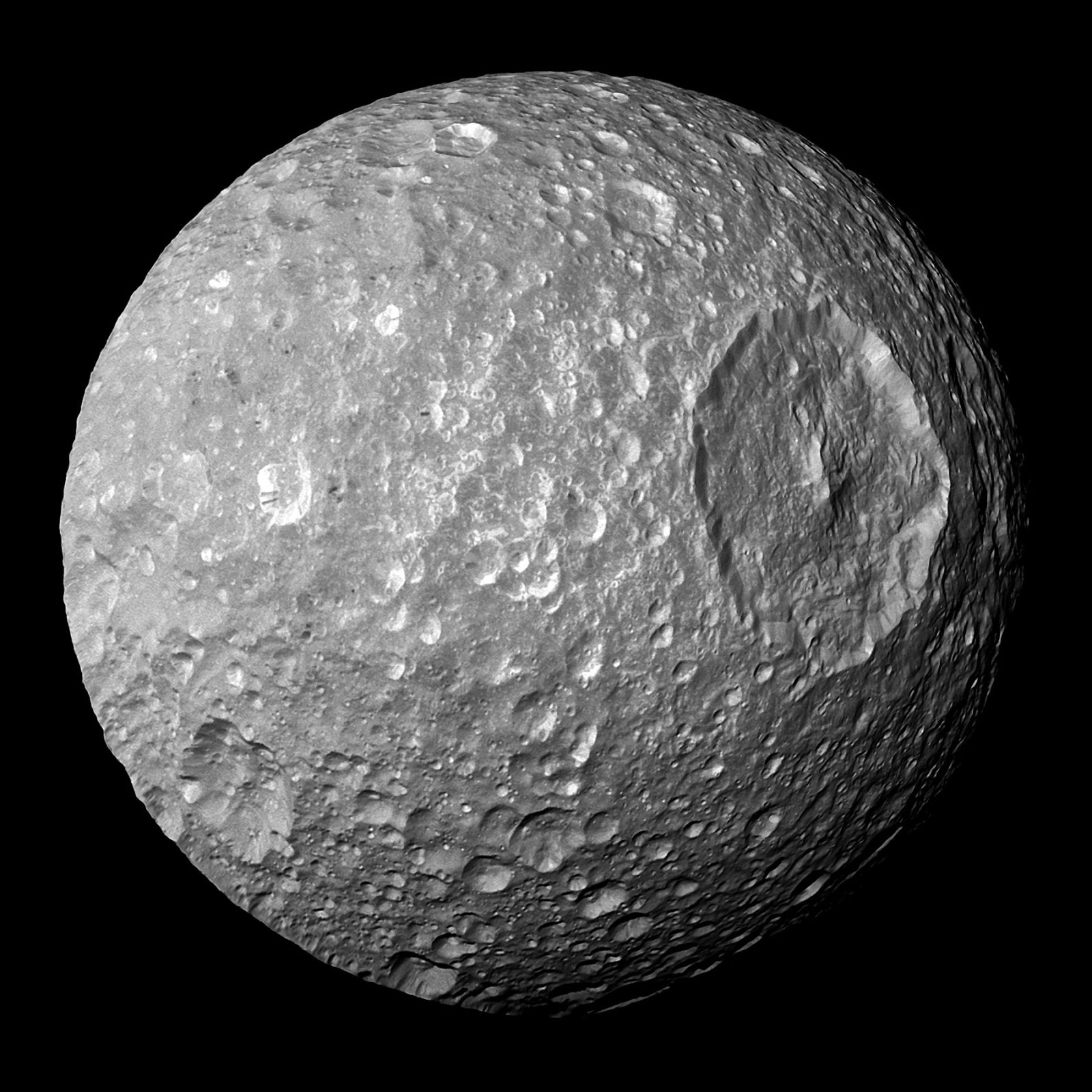Follow us on Google News (click on ☆)

Saturn's moon Mimas. NASA image.
With a span of just about 249 miles (400 kilometers) in diameter, Mimas did not hint at harboring such a treasure beneath its rugged surface. This revelation is the outcome of an international collaboration involving researchers from five different institutions, based on the meticulous analysis of data provided by NASA's Cassini probe. By studying Mimas's interactions with Saturn, the team detected an unexpected irregularity in its orbit, thus unveiling the existence of its hidden ocean.
The ocean of Mimas, recently formed and determined through a detailed analysis of its tidal interactions with Saturn, emphasizes the moon's importance as a study target for researchers investigating the origins of life. The discovery of this young and hidden ocean reinforces the idea that even seemingly inactive, smaller moons can harbor oceans capable of supporting essential conditions for life, thereby expanding the research prospects on life beyond Earth.
This research, led by Dr. Lainey with the assistance of colleagues from three different countries, perfectly illustrates the collective effort required to uncover the fascinating and unexpected features of the Saturn system, leveraging data collected by the Cassini mission. Mimas's ocean, with its relatively recent formation, urges us to reconsider our understanding of conditions conducive to life, possibly bringing us closer to the answer to the age-old question: are we alone in the Universe?